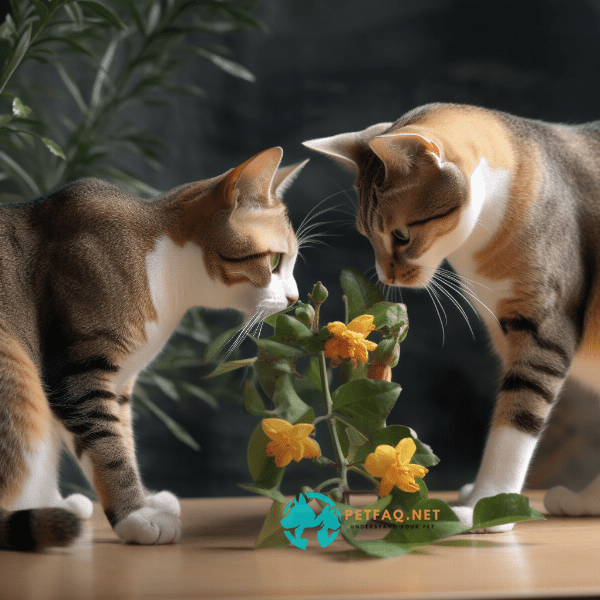Catnip is a herb that belongs to the mint family and contains an essential oil called nepetalactone. This oil produces a euphoric reaction in cats when they inhale it, and it is estimated that approximately 50-70% of cats are affected by catnip. However, some cats do not respond to catnip, and it is not entirely clear why.
While catnip is the most popular plant for cats, there are other alternatives that can also produce a similar effect. These plants contain different compounds that can trigger a response in cats, and some cats may be more receptive to them than others. Here are some alternatives to catnip:
- Valerian root: Valerian root has a strong odor that can be attractive to cats. The root contains compounds that can produce a sedative effect in humans, but in cats, it can produce a similar effect to catnip.
- Silver vine: Silver vine is a plant that grows in the mountainous regions of Japan and China. It contains two compounds, actinidine, and dihydroactinidiolide, that can produce a euphoric response in cats.
- Tatarian honeysuckle: Tatarian honeysuckle is a shrub that is native to Asia and Europe. The plant contains a compound called nepetalactol, which is similar to nepetalactone found in catnip.
- Cat thyme: Cat thyme is a type of thyme that is high in nepetalactone, the same compound found in catnip. It has a slightly different smell than catnip, but it can produce a similar effect in cats.
- Lemongrass: Lemongrass contains a compound called citral, which can be attractive to cats. The plant can produce a calming effect in cats, and some may even exhibit a playful behavior.
It is important to note that not all cats will respond to these alternatives, and some may have a preference for one plant over another. Additionally, some cats may not respond to any of these plants. The response to these plants can also vary depending on the age, gender, and health of the cat.
In conclusion, while catnip is the most popular plant for cats, there are other alternatives that can produce a similar effect. Some cats may be more receptive to these alternatives than others, and it is worth trying different plants to see which ones your cat responds to the most. However, it is important to note that these plants should be used in moderation, as an excessive amount can cause digestive issues or even be toxic to your cat.
Read more:Cat-Friendly Alternatives to Catnip

Related Questions
- What are some different types of catnip toys available?
- Are there any other natural remedies that can help cats sleep better besides catnip?
- What qualifications do you need to become a professional dog trainer?
- How often should you clean your cat’s teeth?
- How do I introduce my cat to toothpaste and get them comfortable with the toothbrushing process?
